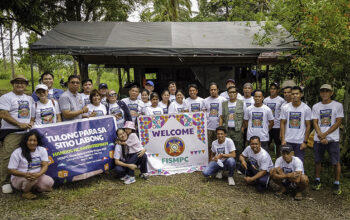The House Committee on Labor and Employment has recently approved the proposed Freelance Workers’ Protection bill (HB 2821) that seeks legal and contractual protection for freelance workers and provide them ease of doing business.
Principally authored by Albay 2nd District Rep. Joey Sarte Salceda, HB 2821 aims to advance the rights and welfare of freelance workers, ensure humane working conditions and proper living wage for them, and protect their interests in instances where their employers refuse to pay them for the services they rendered, or similar such cases.
The Lower House unanimously passed the measure 2021 during the 18th Congress, but it failed to hurdle the whole enactment process. Salceda said the existing Labor Code has no definition for freelancing and provides no formal contractual framework for it, even as Filipino freelance workers already numbered over 1.5 million prior to the Covid-19 pandemic.
HB 2821 defines a freelance worker as any person “hired or retained to provide services in exchange for compensation, or as an independent contractor to do work according to one’s own methods and without being subjected to the control of the hiring party,” which may be a corporation registered with the Securities and Exchange Commission, or a sole proprietorship under the Department of Trade and Industry.
“If this measure is enacted, freelancers will have contractual protections and tax amnesty for their own sector, and will be required to register themselves legally with the Bureau of Internal Revenue,” said Salceda.
Under the measure, he explained, any hiring party availing of the services of a freelance worker shall execute a written contract with the worker before services are rendered. Both parties shall each retain a signed copy of the contract, written in plain language and understood by both parties.
The contract, he added, will itemize the services to be rendered, the details of compensation and related benefits, the employment period, the grounds for breach of contract, their tax identification numbers (TIN), and other conditions the Department of Labor and Employment (DOLE) may prescribe.
When enacted into law, Salceda said freelancers who are required to be physically present in the workplace or those on field assignments, shall be paid a night shift differential of not less than 10% of one’s regular compensation for each hour of work performed between 10 p.m. and 6 a.m., unless there is a more favorable fee stipulated in the contract.
Freelance workers deployed in dangerous conflict areas, distressed or isolated locations, areas under state of calamities or emergencies, contagions, radiations and the like will be granted hazard pay equivalent to not less than 25% of the total payment stated in the contract, he added.
The bill also provides a civil penalty of P50,000 to P500,000 for unlawful practices stated in the measure which include paying compensation due the freelance worker later than 15 days after the stipulated payment date.
The measure likewise seeks to make it unlawful for hiring entities to engage in illegal practices that are violative of the measure’s provisions like filing a complaint against freelancers who assisting and providing DOLE with information related to mediation or conciliation agreement and in investigation of cases related to freelancing. Those who violate the foregoing may be fined between P50,000 to P500,000. The bill likewise provides that all freelance workers should register with the Bureau of Internal Revenue and would pay taxes annually.
“In our age of millennialism, inter-connectivity, instantaneous global communication and creative entrepreneurship with internet-based work, we can only expect a growing pool of workers who need not report to office but rather work from home or in a creative stationary set up,” Salceda said.
He pointed out that “freelancing has already become the lifeline for millions of Filipinos, especially those who lost their regular jobs during the pandemic; and as the economy becomes more digital, there will be more freelancing, without legal protections for which, we will also see more labor exploitations.”
Salceda said freelancing is the natural consequence of the trend towards digital transformation and shift to working from home, and “freelancers will be like work-from-home OFWs (overseas Filipino workers) in the future, and as the world grows more digitally connected, millions of them will have the chance to earn foreign currency while staying in the country.”
He stressed that “thousands, in fact, already do, and the sector has great potentials, thus the need to ensure that labor issues in other sectors now do not spill over to this promising sector.”










